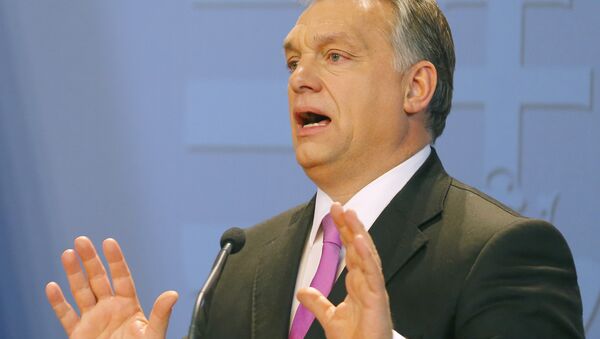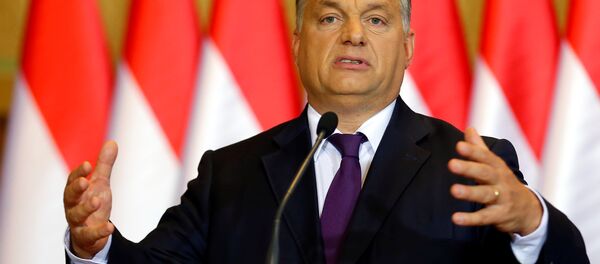Judging by a letter, sent by European Council President Donald Tusk, it appears that at no point did Orban veto any part of the declarations — effectively consenting to the relocation plan, which he no loudly protests against at home.
Deeply Dysfunctional
According to the Budapest Beacon newspaper, in fact Orban would have had a chance to veto EC decisions concerning refugees no fewer than six times, during related EC meetings on June 25-26, 2015, October 15, 2015, December 7-18, 2015, February 18-19, 2016, March 17-18, 2016 and June 28,2016.
"In this admission, we see a classic example of European leaders agreeing to one thing in the consensus-driven European Council, the highest political body in the EU, only to go back to their capitals and blame Brussels for imposing its will on the country. Such practice is also highlighted in our recent report on Council Transparency," Transparency International's Edd McMillan said in a blog.
"Leaders and other decision-makers of EU countries are able to continue this Janus-faced approach because the Council, at all levels, lacks transparency. It is not possible to find out the position of a Member State until the end of a very long process when the decision is finally adopted. This means that countries are free to agree to things or oppose them without having to be accountable for them towards their citizens."
BREAKING! @TheProgressives chairman @giannipittella calls out EU Commissioner @TNavracsicsEU: do you work for #Orban or EU? (I choose A) pic.twitter.com/dcYG4FwCd6
— Cas Mudde (@CasMudde) 7 October 2016
The Orban affair exposes a deep flaw in the way the European Council works. When country leaders — or their ministers — meet at the Council, decisions are made by consensus, which means that there are very rarely any votes on a particular issue. Thus, it is highly unusual to discover the position a country actually takes on any issue.
The fact that Orban failed to object at Council level, yet loudly protests against the migrant relocation scheme is a further example of the deeply dysfunctional nature of the workings of the EU. This further compounds the lack of trust in its institutions and a further mismatch between democracy in individual states and the Brussels machine.





